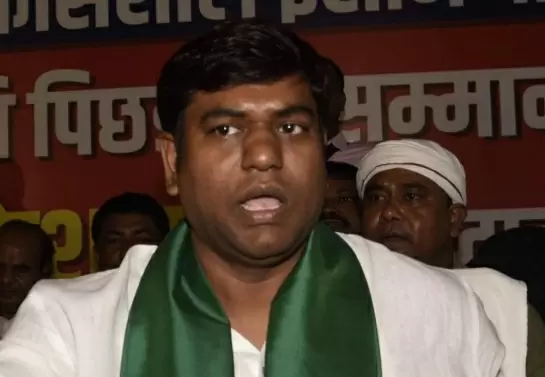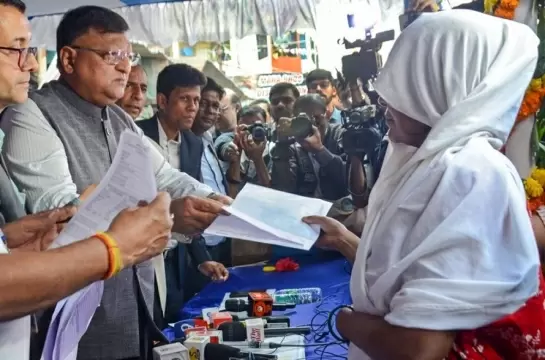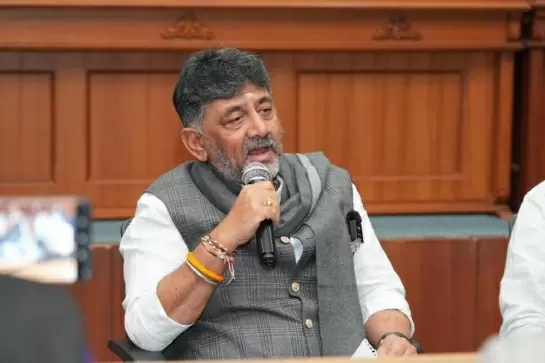SC questions PM on ministers with criminal past
27-August-2014
The Supreme Court Wednesday said the prime minister was not expected to make people facing heinous charges ministers although there can be no bar on who is taken into the ministry.
A constitution bench said this in a majority verdict by Chief Justice R.M. Lodha, Justice Dipak Misra and Justice S.A. Bobde. Justice Madan B. Lokur and Justice Kurian Joseph gave separate judgments but concurred with the majority view.
Chief Justice Lodha, Justice Misra and Justice Bobde said that while interpreting article 75(1) of the constitution, disqualification cannot be added to prevent a person facing heinous and serious offences including corruption from becoming a minister.
The court said this while examining the scope and purpose of articles 75(1) and 164(1) of the constitution.
In 2005, a man named Manoj Narula moved the court regarding ministers with criminal past. In March 2006, the matter was referred to the constitution bench which heard it this year.
Speaking for the majority, Justice Misra said: "The prime minister, while living up to the trust reposed in him, would consider not choosing a person with criminal antecedents against whom charges have been framed for heinous or serious criminal offences or charges of corruption to become a minister...
"This is what the constitution suggests and that is the constitutional expectation from the prime minister. Rest has to be left to the wisdom of the prime minister. We say nothing more, nothing less."
The majority judgment said what was valid for the prime minister was also applicable to chief ministers.
Justice Lokur said in a separate judgment: "Not only is the quantum of sentence relevant but the nature of the offence that might disqualify a person from becoming a legislator is equally important."
He said the offences and the sentence to be awarded for the purpose of disqualifying a person from being elected to a legislature were matters for parliament to debate and consider.
But Justice Lokur said: "This being the position, the burden of appointing a suitable person as a minister in the central government lies entirely on the shoulders of the prime minister and may eminently be left to his or her good sense."
Justice Joseph said: "I am of the firm view that the prime minister and the chief minister will be well advised to consider avoiding any person in the council of ministers against whom charges have been framed by a criminal court in respect of offences involving moral turpitude and also offences specifically referred to in the Representation of the People Act."
While conceding the prime minister's prerogative to select his ministers, the majority verdict said: "We cannot be oblivious of the three concepts: constitutional morality, good governance and constitutional trust."
Saying the prime minister has been regarded as the "repository of constitutional trust", the court said the use of the words "on the advice of the prime minister" cannot be allowed to lose their significance.
"In a controlled constitution like ours, the prime minister is expected to act with constitutional responsibility as a consequence of which the cherished values of democracy and established norms of good governance get condignly fructified."
The court said the "the framers of the constitution left many a thing unwritten by reposing immense trust in the prime minister".
The prime minister has to "bear in mind that unwarranted elements or persons who are facing charges in certain category of offences may thwart or hinder the canons of constitutional morality or principles of good governance and eventually diminish the constitutional trust". - IANS
Opposition Moves to Impeach Justice G R Swaminathan; Kanimozhi Cites Loss of Public Trust
Akhilesh Yadav Slams Centre, Yogi Govt Over Pollution And SIR Drive
PM, HM Set Out To Become Historians But Became ‘Distorians’: Jairam Ramesh
Under-16s Blocked From Social Media In Australia As Ban Comes Into Force
Armed Man Arrested At Vijay’s Puducherry Rally Venue, Security Tightened









